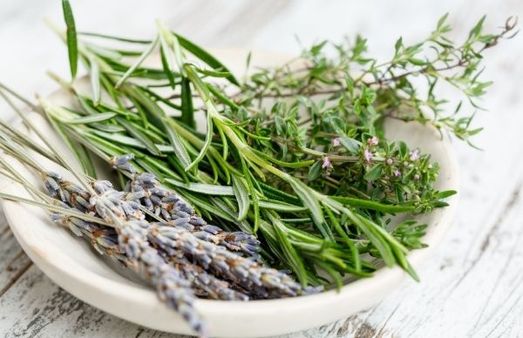Just In
- 1 hr ago

- 5 hrs ago

- 7 hrs ago

- 8 hrs ago

Don't Miss
- Sports
 Pakistan vs New Zealand 2nd T20I LIVE Updates: Match Starts at 7:30 pm PST in Rawalpindi
Pakistan vs New Zealand 2nd T20I LIVE Updates: Match Starts at 7:30 pm PST in Rawalpindi - News
 India Vs Pakistan Series Can Be A Booster To Test Cricket: Rohit Sharma; Shahid Afridi Backs Him
India Vs Pakistan Series Can Be A Booster To Test Cricket: Rohit Sharma; Shahid Afridi Backs Him - Finance
 Rs 17.50/Share Dividend: Tata Mid Cap To Consider Dividend On April 29, LIC Stake 9.88%
Rs 17.50/Share Dividend: Tata Mid Cap To Consider Dividend On April 29, LIC Stake 9.88% - Movies
 Animal Director Sandeep Reddy Vanga Gives Major Update About The Sequel, Here's What We Know
Animal Director Sandeep Reddy Vanga Gives Major Update About The Sequel, Here's What We Know - Automobiles
 Ola Electric Hits New Milestone – 500th Service Centre Opened In Kochi
Ola Electric Hits New Milestone – 500th Service Centre Opened In Kochi - Education
 Railway RPF Recruitment 2024; Apply Online for 4660 Post Vacancies @rpf.indianrailways.gov.in
Railway RPF Recruitment 2024; Apply Online for 4660 Post Vacancies @rpf.indianrailways.gov.in - Technology
 Best Noise-Cancelling Earbuds Under Rs 5,000: CMF Buds Pro, Redmi Buds 5, Realme Buds Air 5, and More
Best Noise-Cancelling Earbuds Under Rs 5,000: CMF Buds Pro, Redmi Buds 5, Realme Buds Air 5, and More - Travel
 Journey From Delhi To Ooty: Top Transport Options And Attractions
Journey From Delhi To Ooty: Top Transport Options And Attractions
Irritable Bowel Syndrome: An Ayurvedic Perspective (Expert Article)
Irritable bowel syndrome (IBS) is a chronic inflammatory disease of the colon predominantly. The disease is the result of multiple mechanisms: post-inflammatory changes, chronic infection, psycho-somatic relationships, auto-immune pathology, etc. The disease is usually non-fatal, but patients suffer a lot from the disease. The disease is manageable with medicinal medicines and herbal medicines effectively.
A patient may experience an increase in symptoms such as paroxysm that typically manifest due to diet changes, taking food in a stressful situation, physical and mental stress, travelling, irregular sleep, the stressful atmosphere at work or home, etc.

The disease is believed to be prevailing in approximately 20% of the adult population globally. The disease prevails more in developed countries than in Asia and India. In India, there is a very high prevalence of microbial diarrhoeal diseases i.e. diarrhoea. The study presented by Shashikant Narayan Nagaonkar opined that the disease is observed in approx. 10% of the population. The disease is not fatal but the patient feels uncomfortable and miserable. Dull abdominal pain and irregularity of bowel make the patient irritated, this initiates a vicious circle of stress, medication, and non-healing disease.

Types Of IBS:
IBS is presented in three different forms: IBS - D (diarrhoea prone), IBS - C (constipation prone) and IBS - M (mixed characteristics - alternative symptom of diarrhoea and constipation). Indigestion, abdominal discomfort, flatulence, mood changes, and worry are observed in all varieties. Diarrhoeal presentation is commonly observed in the majority of cases of IBS, the lesser cases were with irregular bowel on constipation and alternating diarrhoea and constipation.
IBS - D - This is the most commonly observed IBS; patients have characteristic features of increased frequency of bowel movement, loose stools, often with mucus, occasionally with pus and/or blood, tenesmus, gastric disturbances, abdominal pain, dyspepsia, heartburn, nausea, vomiting, other constitutional symptoms of malaise, fatigue, vague pain, muscle pain, myalgia, psychological disturbances, etc.
IBS - C - constipation prone IBS is a lesser common form of IBS than diarrhoeal prone IBS. The disease manifests with symptoms of irregular bowel, incomplete stool passage, constipation (classically means passing stool less than three times a week), hard stool, sticky stools, abdominal cramps, abdominal discomfort, headache, malaise, and other constitutional symptom. In India, this type of IBS is commonly observed with certain symptoms of allergy especially rhinitis, cold, excessive sneezing, sinusitis, or migraines headache. Psychological disturbances like anorexia, nausea, and insomnia are not rare.
IBS - M - This is a mixed form of the disease, in India the prevalence of the disease is quite high but as per global demography, this variety is listed third in the classification. In this disease, a patient has alternative characteristics of diarrhoeal presentation and constipation. The alternation may be triggered by psychological factors, diet changes, drugs, etc., patient often complaints about a feeling of incomplete evaluation, passing stools more than one time a day with hard stool on occasion and liquid consistency at other times. Patients, if managed with purgatives, may face any diarrhoeal problems and using anti-diarrhoeal may lead to constipation. So the patient may need individualised management with medication that regulates the bowel, and intestinal motility, improves digestion, regulate absorption and mental pacification.

Ayurveda Understanding Of IBS
IBS is a disease under the big umbrella of Pravahika (there are many different medical conditions that may be grouped under Pravahika). The disease is believed to be occurring due to two different mechanisms. The first mechanism is acute inflammation characterised by catarrhal inflammation that is characterised by the passing of stools with marked tenesmus, mucus, pus, blood discharge, abdominal pain and discomfort.
The second variety is due to chronic inflammation due to improper management during the period of pathological recovery. There are two types of recovery in microbial illness, the first one is clinical recovery. In this recovery, a patient is regaining health, presenting - harassing symptoms were relieved and the patient feels healthy - but there is the presence of microbial agents, the changes in tissues were not restored, the gross level digestion and metabolism are not restored and the microbial agents continues to remain in body fluids or gets into dipper tissues. the second type of recovery is named pathological recovery or complete recovery.
It is evident that the ancient Ayurveda scholars were well aware of the phenomenon and thus they advocate purification (therapeutic emesis - vamana and therapeutic purgation - virechana after illness or relief in presenting symptoms) in the recovery phase or last phase of the disease. This practice allows the microbial organism to get out of the body and doesn't produce the disease - if the morbid Doshas were pacified they may provoke if finds a favourable atmosphere, and if they are eliminated by purification there is no chance of disease due to the morbid Doshas. The following stanza from Charaka Samhita explains this:
दोषाः
कदाचित्
कुप्यन्ति
जिता
लङ्घनपाचनैः|
जिताः
संशोधनैर्ये
तु
न
तेषां
पुनरुद्भवः||२०||
दोषाणां
च
द्रुमाणां
च
मूलेऽनुपहते
सति|
रोगाणां
प्रसवानां
च
गतानामागतिर्ध्रुवा||२१||
Patient with the diarrhoeal disease, it doesn't follow the regulation of diarrhoeal disease, drugs, observes and ingests unwholesome food, drinks, routine, and discontinues medication without advice, which may lead to changes in gastric digestion, non-restoration of the original histological status of diseased tissues and thus with little cause or exposure of etiological factors patient gets blow of disease.

Ayurveda Management Of IBS
Ayurveda offers holistic management of IBS and this includes medication - single herb, polyherbal compound, herbo-mineral compounds, diet management, diet planning and management, purification procedures - virechana - therapeutic purgation, Basti - therapeutic enema, psychological management through herbal medicines and tranquilization.
The commonly used medicines for medicinal management are as follows:
1) Kutaj - H. antidysentrica - This is a commonly available herb. The herb possesses anti-malarial, anti-diabetic, anti-oxidant, anti-urolithic, anti-mutagenic, CNS-stimulating, Angiotensin-converting-enzyme inhibitory and acetylcholinesterase inhibitory activity. Thus it makes a better choice for managing chronic bowel disease and IBS (diarrheal prone). The herb is well tolerated and doesn't have any major adverse drug reactions in therapeutic dosages.
2) Haritaki - Popularly known as Harad in the local language. The medicine possesses antiulcer, antioxidant, anticarcinogenic, antimutagenic, radioprotective, hepatoprotective, cardioprotective, cytoprotective, antidiabetic, and renoprotective, antibacterial, antifungal, antiviral, antiprotozoal, anti-inflammatory, antiarthritic, antispasmodic, wound healing and anticonceptive, molluscicidal, anthelmintic, anaphylactic, hypolipidemic, hypocholesterolemic. Also has chemopreventive potential and adaptogenic activities.
3) Bilva - Bilva (Aegle marmelos)- This is used for long for diarrhoeal diseases and malabsorption syndrome for ages. Its leaves, fruit, and even root bark are used for different medicinal purposes. It has anti-dysentery action, antimicrobial, antidiabetic, cardioprotective, and bowel regulatory properties. Long term use is also not associated with a major adverse drug reaction.
4) Jira - cumin seeds - Jira or cumin seeds (Cuminum cyminum) are used as a condiment in Indian cuisine. It has several medicinal properties and is commonly used in diarrheal conditions. As per Sharangdhara it first corrects the digestion (corrects digestion, restores host defence and then stops diarrhoea), as per modern pharmacology, cumin possesses antimicrobial, insecticidal, anti-inflammatory, analgesic, antioxidant, anticancer, antidiabetic, antiplatelet aggregation, hypotensive, bronchodilatory, immunological, contraceptive, anti-amyloidogenic, anti-osteoporotic, aldose reductase, alpha-glucosidase and tyrosinase inhibitory effects, protective and central nervous effects.
5) Nimbu - Lemon is commonly used in Indian households. This is considered a good source of vitamin c and citrus acid. It can be used in acute conditions of diarrhoea as well as chronic mucus colitis.
6) Cow's ghee - Cow's ghee can be used for the treatment of mucus colitis. Ghee contains fats and important vitamins A, D, and E and thus acts as a rejuvenator. As per classical descriptions, the Ghee is considered as Deepana i.e. increases metabolic fire (essential for digestion of food). This is used for the management of Grahani (analogues to mal-absorption syndrome) and mucus colitis - with pomegranate and ghee.
7) Trifala - The combination of three fruits Haritaki, Bhibhitaki and Amalaki is considered the best laxative as it is not habit-forming, well tolerated by patients and safe for longer use. The medication can also be used as Rasayana i.e. rejuvenator.

Ayurveda Management Of IBS - Importance Of Digestion
Indigestion and improper action of metabolic fire (Agni) is considered the major cause of all disease and are especially responsible for the disease of the alimentary tract.
The SOP of treatment laid down by the classics is as follows:
1.
Improve
the
status
of
Agni
(metabolic
fire)
2.
Improve
functions
of
Grahani
(duodenum)
and
Pakwashaya
(colon)
and
Purishadhara
Kala
(caecum
&
colon
mucosa)
3.
Improve
the
function
of
Samana
Vyau
(neurological
regulation
of
alimentary
tract)
and
Apana
Vayu
(neurological
regulation
of
colon,
and
pelvic
organs)
4.
Regulate
functions
of
absorption,
biological
flora
of
the
colon
-
maintain
a
symbiotic
relationship
5.
Improve
nutritional
status
of
the
colon,
and
host
defence
mechanism
6.
Restoration
to
normal
homeostasis
This can be achieved by improving the functions of Agni (metabolic fire for digestion and metabolism of food). This can be achieved by medication, regulating diet (as per the individual constitution and present health status) and mental peace (meditation).

Ayurveda Management Of IBS: Why Choose Ayurveda?
IBS is a chronic inflammatory medical condition with occasional acute exacerbation. It affects the somatic sphere as well as a psychological sphere and thus patient suffers from a viscus circle that leads to chronic and long term suffering (acute disease --> psychologically disturbed --> vitiates agni and disturbs psychological -neurological immunological functions of body --> inflammation of colon --> irregular bowel --> acute disease). The best way to tackle the tricky situation is using holistic Ayurveda treatment.
April is declared as IBS awareness month by IFFGD (International Foundation for Gastrointestinal Disorders) and this article is intended to increase awareness about Ayurveda management options for chronic bowel disease or IBS.
Article is published in the public interest to increase awareness about understanding disease ayurvedically. For more details and consultation readers may contact the Ayurveda physician or Ayurveda College.
-
 healthFrom Mind To Gut: The Surprising Connection Between Stress And Digestion
healthFrom Mind To Gut: The Surprising Connection Between Stress And Digestion -
 healthHaving Chicken Soup At Home Can Cure These Health Issues
healthHaving Chicken Soup At Home Can Cure These Health Issues -
 healthAyurvedic Items To Keep With You While You Are Traveling
healthAyurvedic Items To Keep With You While You Are Traveling -
 healthWhy Morning Is The Best Time To Detox According To Ayurveda?
healthWhy Morning Is The Best Time To Detox According To Ayurveda? -
 healthDurga Puja 2023: Health Benefits of Parijat Leaves And Flowers
healthDurga Puja 2023: Health Benefits of Parijat Leaves And Flowers -
 healthAyurvedic Wisdom: Panchamrit's Surprising Health Benefits
healthAyurvedic Wisdom: Panchamrit's Surprising Health Benefits -
 healthUnveiling the Power of Turmeric Ghee: An Ancient Ayurvedic Secret!
healthUnveiling the Power of Turmeric Ghee: An Ancient Ayurvedic Secret! -
 beautySay Goodbye to Dry and Damaged Hair with These Ayurvedic Remedies!
beautySay Goodbye to Dry and Damaged Hair with These Ayurvedic Remedies! -
 beautyUnlocking Ayurveda's Secrets: Natural Hair Care Tips For Hair Loss
beautyUnlocking Ayurveda's Secrets: Natural Hair Care Tips For Hair Loss -
 beautyHair Loss From Stress? Try These Ayurvedic Remedies
beautyHair Loss From Stress? Try These Ayurvedic Remedies -
 healthFrom Illness To Wellness: Traditional Home Remedies For Dengue That Work
healthFrom Illness To Wellness: Traditional Home Remedies For Dengue That Work -
 healthDoctors Day: The Future of Medicine in India: Top 5 Recent Medical Innovations
healthDoctors Day: The Future of Medicine in India: Top 5 Recent Medical Innovations


 Click it and Unblock the Notifications
Click it and Unblock the Notifications



